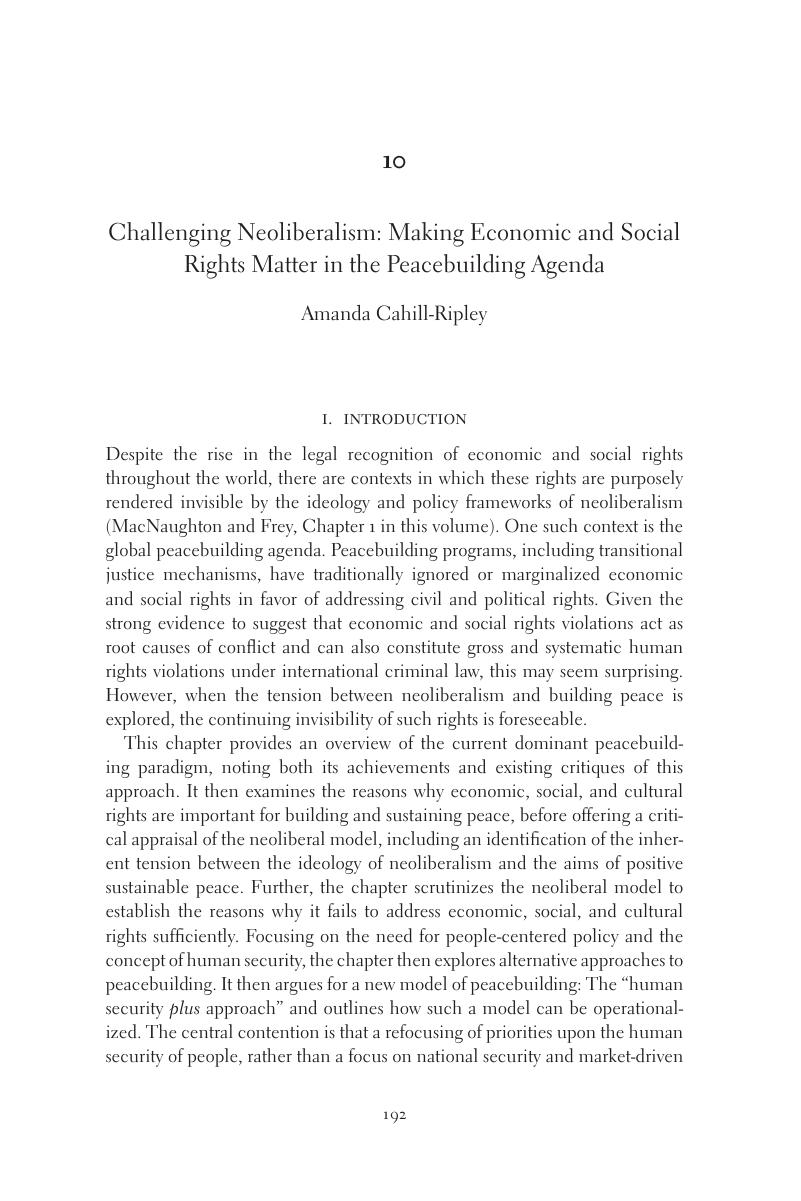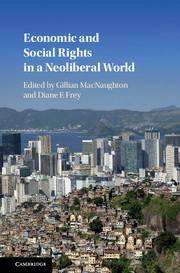Book contents
- Economic and Social Rights in a Neoliberal World
- Economic and Social Rights in a Neoliberal World
- Copyright page
- Dedication
- Contents
- Figures
- Tables
- Notes on Contributors
- Acknowledgments
- 1 Introduction
- PART I Economic and Social Rights under Neoliberalism
- PART II Economic and Social Rights in Times of Crisis
- 7 A Hierarchy of Comfort? The CESCR's Approach to the 2008 Economic Crisis
- 8 Do Metrics Matter? Accountability for Economic and Social Rights in Post-Revolution Egypt
- 9 Contesting Neoliberalism: Bringing in Economic and Social Rights to End Violence against Women in Mexico
- 10 Challenging Neoliberalism: Making Economic and Social Rights Matter in the Peacebuilding Agenda
- PART III Economic and Social Rights in Development
- Part IV Accountability for Economic and Social Rights
- Index
- References
10 - Challenging Neoliberalism: Making Economic and Social Rights Matter in the Peacebuilding Agenda
from PART II - Economic and Social Rights in Times of Crisis
Published online by Cambridge University Press: 13 July 2018
- Economic and Social Rights in a Neoliberal World
- Economic and Social Rights in a Neoliberal World
- Copyright page
- Dedication
- Contents
- Figures
- Tables
- Notes on Contributors
- Acknowledgments
- 1 Introduction
- PART I Economic and Social Rights under Neoliberalism
- PART II Economic and Social Rights in Times of Crisis
- 7 A Hierarchy of Comfort? The CESCR's Approach to the 2008 Economic Crisis
- 8 Do Metrics Matter? Accountability for Economic and Social Rights in Post-Revolution Egypt
- 9 Contesting Neoliberalism: Bringing in Economic and Social Rights to End Violence against Women in Mexico
- 10 Challenging Neoliberalism: Making Economic and Social Rights Matter in the Peacebuilding Agenda
- PART III Economic and Social Rights in Development
- Part IV Accountability for Economic and Social Rights
- Index
- References
Summary

- Type
- Chapter
- Information
- Economic and Social Rights in a Neoliberal World , pp. 192 - 214Publisher: Cambridge University PressPrint publication year: 2018
References
- 1
- Cited by



